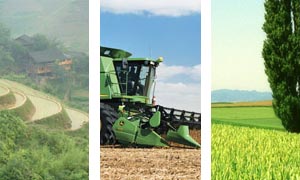 |
Many agricultural operations have been mechanized so far, however, we still have many risky, hard, dirty and monotonous works which are not suited for human beings. Number of farmers is decreasing in many countries in the world that means that we have few successors for farming, because agriculture is not fascinating for younger generation compared with the secondary and the tertiary industries due to the above reasons.
|
Even farmer's children tend not to succeed their fathers' works so that skill and know-how can not be transferred to the next generation.Some intelligent systems which can numerize the farmer's skill regarding agricultural operations are desired. The systems can make anybody farm, even if he has no farming experience. Labor costs are rising in inverse proportion to the declining farmer population in vicinity of high population areas in many countries, especially in Japan. Even in USA where relative cheap labor can be supplied from southern countries, the labor cost has become expensive recently in the suburbs of megalopolis. In addition, human judgment and evaluation for products are vague and are changeable depending on time and place.Different person obviously often makes a different judgment and evaluation. It is desired that they are carried out objectively by a quantitative system.
In laboratories of Engineering in Agricultural and Biological systems (Laboratory of Agricultural Systems Engineering and Laboratory of Agricultural Machinery), our challenges are to solve the above problems in agricultural and biological systems and to construct new bio-production systems through engineering methodologies.
It is necessary that our research objects are not only a mechanical system handling biological object but also biological material-self such as a growing plant and animal, a harvested plant and fruit,..etc. to construct a new bio-production system. However, the properties of biological objects have much complexity and diversity. Even on the same plant variety, its behavior is often different depending on time and place. It is, therefore, essential to measure and investigate physical, physiological, and chemical properties of the object and to match them.
|
Simultaneously, we do not forget that some of the properties of growing plants and animals are changeable by environmental controls. For instance, cultivation methods and plant training systems have been changed so that quality and quantity of products can be improved and that farmer can work comfortably so far. When we construct a new plant cultivation system with a new machine, the cultivation method and the plant training system should be changed so that not only human beings but also the machine can work smoothly. To change them, it is essential to know the limitation of the plant's potential capabilities to be changed.
Based on the fundamental measurement of the biological objects, our goals are
|







